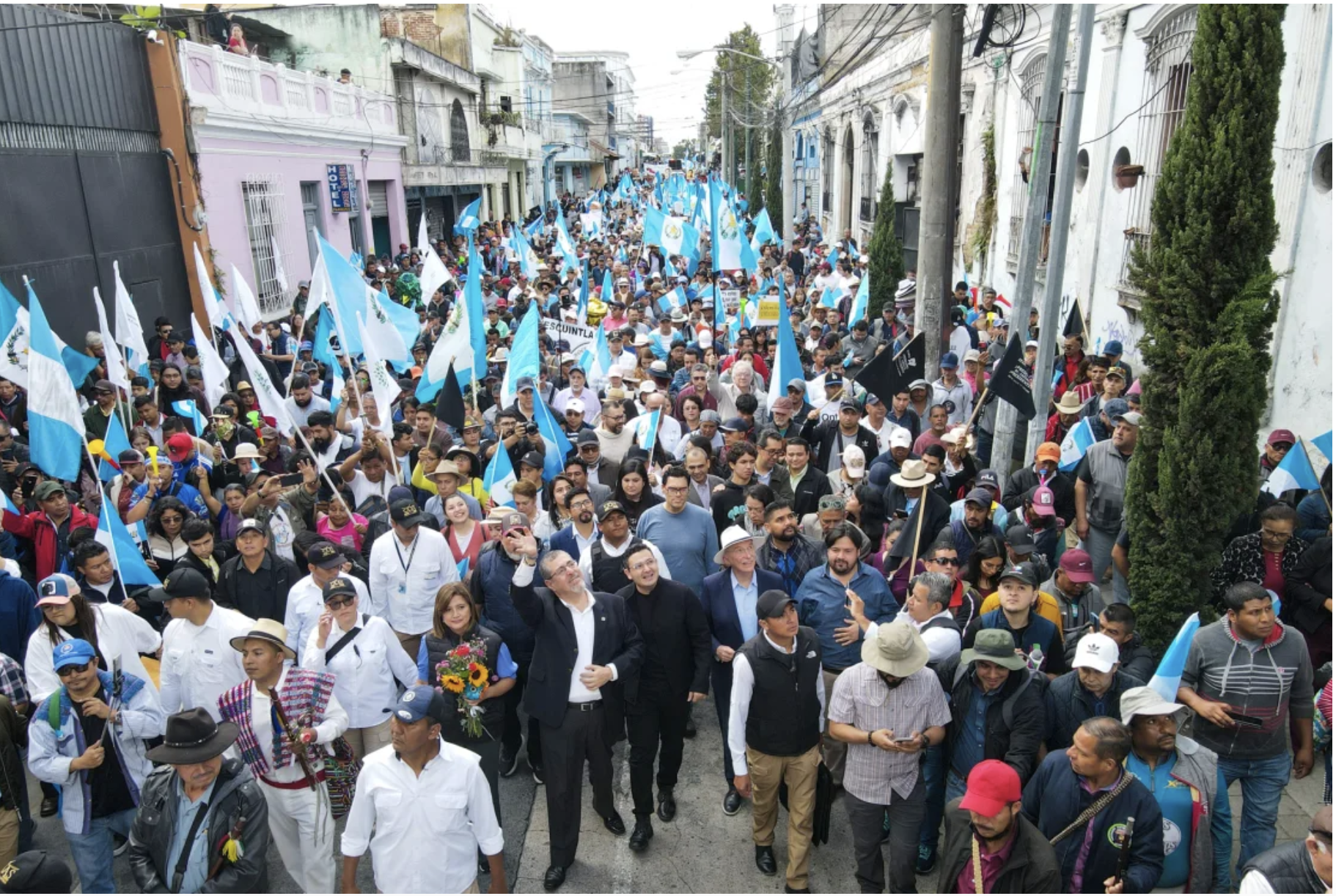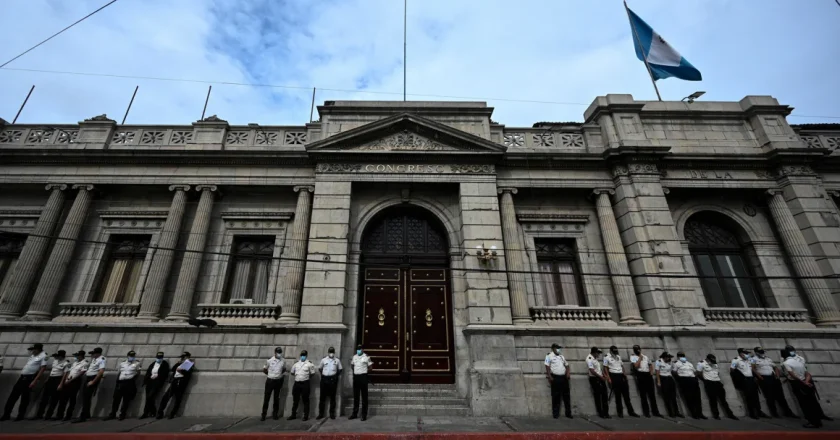The United States announced visa restrictions on nearly 300 Guatemalan citizens on Monday due to what it described as “anti-democratic actions” of officials and “other malign actors,” accused of attempting to annul the election won by President-elect Bernardo Arévalo.
The visa restrictions include “over 100 members of the Guatemalan congress, as well as private sector representatives and their family members for undermining democracy and the rule of law,” the US Department of State wrote in a statement Monday.
Since Arévalo’s landslide victory in the summer, members of Congress and Guatemala’s Public Ministry, headed by Attorney General Consuelo Porras, have been accused of attempting to disqualify the results. Raids were ordered on the electoral authority offices, arrest warrants were requested, and last week, the ministry said it had made another request for Arévalo’s presidential immunity to be stripped. The ministry accuses Arévalo, who won on an anti-corruption platform, of money laundering and the alleged use of false documents to establish his party, the Semilla Movement.
Arévalo, who is due to take office in January, responded to the ministry’s allegations last week saying the attempts to malign his party with various crimes, as well as questioning the elections, were all part of an attempted “coup d’état.”
It came weeks after Guatemala’s Congress approved a resolution, requested by the country’s Public Ministry, to remove the immunity of four of the five Supreme Electoral Tribunal (TSE) judges, the body responsible for certifying Guatemala’s election results.

The maneuvers have triggered widespread international condemnation and mass protests in Central America’s most populous nation.
Arévalo’s father was Guatemala’s first democratically elected president in 1945 and is fondly remembered for creating the country’s social security system. Arevalo was born in Uruguay, during his parents’ exile from the country. He has promised to bring back the journalists, judges and prosecutors who fled the country in the wake of the government shutting down a United Nations-backed anti-corruption commission, known as CICIG,

